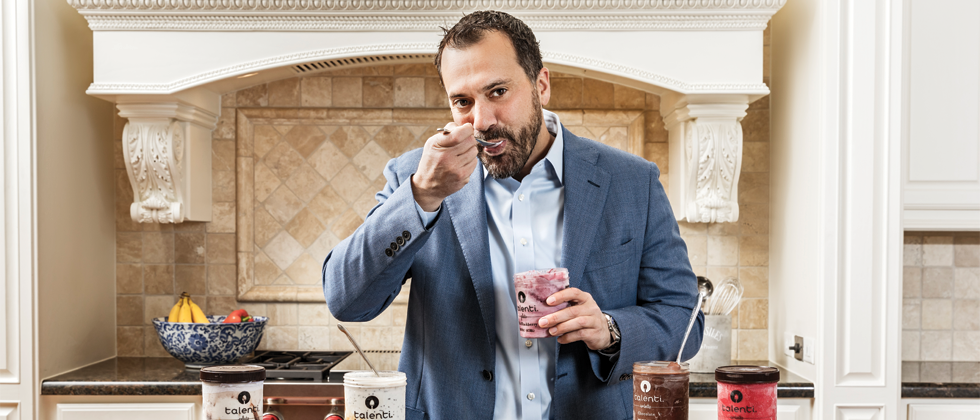Churn It Up
Talenti founder Joshua Hochschuler (BSBA’95) on being adaptable
When Talenti founder Joshua Hochschuler (BSBA’95) moved to Argentina after graduation, he fell in love with the country’s culture—particularly its gelato, a popular treat in a nation where many have Italian roots. After a stint in the financial sector, he turned that passion into Talenti, a gelato company that was snapped up by Unilever in 2014 and today has annual sales of $250 million. Now, Hochschuler is working on a new product, Solero frozen fruit bars. To emulate his success, you’ll need to:
Be willing to change. “If you can’t get comfortable with a lot of change, then you probably shouldn’t embark on starting a business. Because it’s going to be so much change—change just becomes the normal. Initially, my plan [with Talenti] was to have a chain of retail storefronts, starting in Dallas, and then grow regionally. We opened the first store in Dallas in 2003. But, even though the product worked, the business model didn’t. We had based a lot of the model on being able to sell large quantities that people would take to their house, like they did in Argentina at the time. So, even though the margins per cone were good, it wasn’t generating enough dollars to offset all the costs. By 2004, I said to my partner, ‘Something has to change.’ I decided to close this beautiful store that had a lot of my own ego, love, passion, and blood, sweat, and tears involved in it. I had to let go of all that.”
Look for opportunities. “Even before I closed up the shop, local chefs were saying to me, ‘We want to sell this in our restaurants.’ So, I was like, okay that’s what I am going to do now. It’s not always the first idea that’s a good idea, but if you keep your eyes open and look around, often there will be an opportunity that presents itself. I got a 2,500-square-foot warehouse, and it was me and one employee. In the morning, we would make the gelato and I would put it in the back of my car in a little ice chest and drive it to whomever I was delivering it to. Then go back and get more. In 2006, Costco came knocking on the door. They had seen us in a specialty store and asked if they could pull some product in.”
Know when to ask for help. “In 2007, we were picked up by Whole Foods and other chains in a few states. But I realized I just didn’t have the money to fund the business. It’s almost as if you’re a bank, giving people product and waiting 30 days to get paid; and the more sales you have, the more times that’s happening. You need money to do that. So, I decided I needed to find someone who really knows a lot about branding and consumer-packaged goods, and how to manage a business from experience. I pitched to the gentlemen who founded Belvedere vodka, and we partnered. What they were doing—disrupting the category, coming up with unique packaging, creating a very elevated product—was what I was trying to do.”
Surround yourself with talent. “The mantra I echo is: people, systems, structure, and roles. Those four words are repeated often, and there’s a reason why people is listed first. It was a hard pill to swallow for many years that as owner and founder I made significantly less than management. And Steve Gill [of Belvedere] kind of held my hand on that and said something like, ‘We want the absolute best people that we can possibly afford. We want to be the dumbest guys in the room, so we’re surrounded by brilliant people who will help us build the business. And ultimately we will be rewarded due to the business’ success in the end.’ And that’s the way we built it, and that’s the way we’re building Solero. Any penny we have goes to getting the best people as possible. It’s so important. Often people have a hard time recognizing the importance of hiring really good people, and paying what it takes to get those people. Hire really good people and you’ll be able to grow.”

